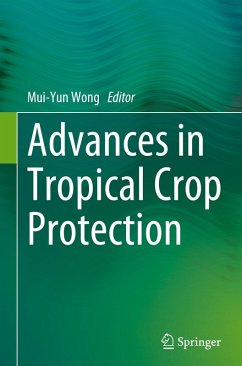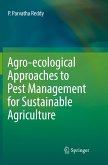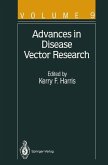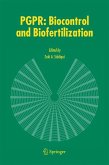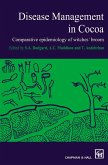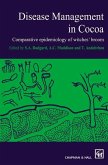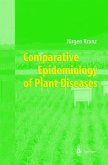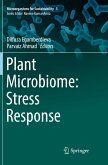This book presents research findings on newly discovered pests and diseases that may be impacted by climate change in the tropics; current management techniques including molecular diagnostics, integrated pest management (IPM), and agroecological approach; and recent technological advancements used as preventive and curative approaches to mitigate the effects of plant pests and diseases. Combining the expertise of leading researchers in the various fields, the book provides a useful reference for all relevant stakeholders.
The proposed book is prepared with the aim of disseminating the current research development of emerging pests and diseases in the tropics in the era of climate change as well as new and eco-friendly pest and disease management technologies of tropical crops. The book is divided into three parts with sixteen chapters. Part 1: Advances in Tropical Insect Pest Management consists of five chapters describing the discovery, formulations, and applications of nature-based solutions such as natural enemies of insects, insect hormones, botanicals, and microorganisms for sustainable pest management. Part 2: Advances in Tropical Plant Disease Management consists of seven chapters, describing the causal agents of economically important diseases of tropical crops, rapid pathogen detection systems as well as effective and sustainable disease management strategies. Part 3: Advances in Other Tropical Pests Management consists of four chapters detailing the various eco-friendly pest management of vertebrates,
mollusks, weeds, and emerging IR4.0 technologies in pest management. Ideas for future volumes on this subject: Volume II would be a follow-up to Volume I. It covers emerging pests and diseases of the tropics in greater depth, with a focus on specific hosts and diseases. Robust pests and disease management technologies utilized in crop protection in tropical areas by the farmers will be discussed as well.
The proposed book is prepared with the aim of disseminating the current research development of emerging pests and diseases in the tropics in the era of climate change as well as new and eco-friendly pest and disease management technologies of tropical crops. The book is divided into three parts with sixteen chapters. Part 1: Advances in Tropical Insect Pest Management consists of five chapters describing the discovery, formulations, and applications of nature-based solutions such as natural enemies of insects, insect hormones, botanicals, and microorganisms for sustainable pest management. Part 2: Advances in Tropical Plant Disease Management consists of seven chapters, describing the causal agents of economically important diseases of tropical crops, rapid pathogen detection systems as well as effective and sustainable disease management strategies. Part 3: Advances in Other Tropical Pests Management consists of four chapters detailing the various eco-friendly pest management of vertebrates,
mollusks, weeds, and emerging IR4.0 technologies in pest management. Ideas for future volumes on this subject: Volume II would be a follow-up to Volume I. It covers emerging pests and diseases of the tropics in greater depth, with a focus on specific hosts and diseases. Robust pests and disease management technologies utilized in crop protection in tropical areas by the farmers will be discussed as well.

